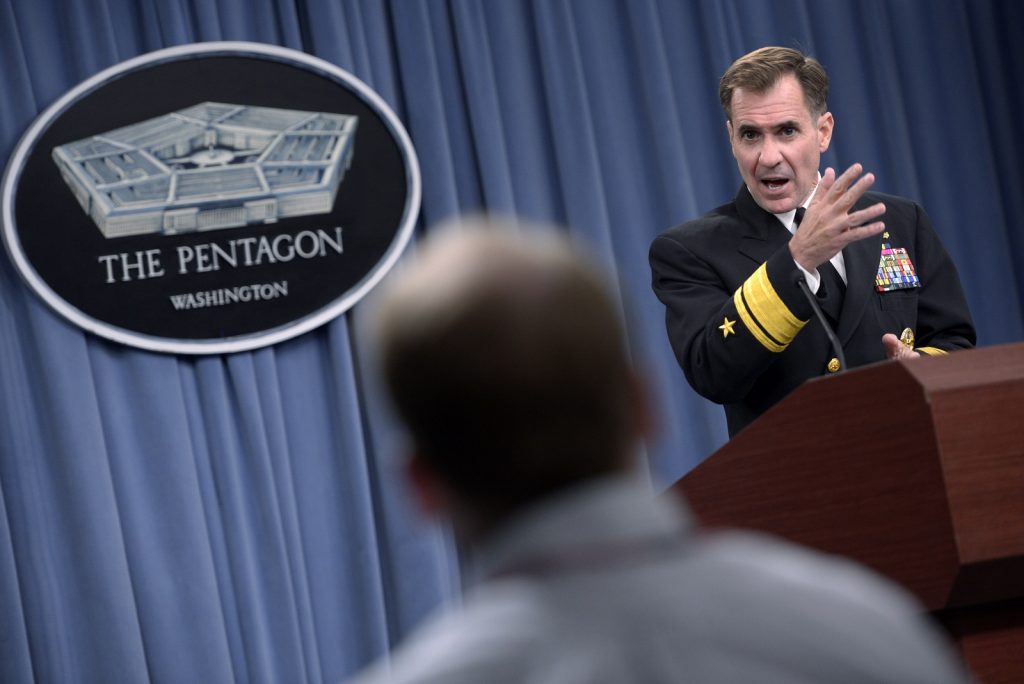The U.S. military carried out a set of airstrikes yesterday targeting Iranian-backed militias at the border between Syria and Iraq. Four Syrians, including one child, were killed during the early morning bombing. This marks Biden’s second military action as president in the region. Earlier this year, his administration also bombed Syria to target Iranian-backed forces.
Iraq and Syria are both within Iran’s sphere of regional influence and have been battlegrounds for regional proxy conflicts and instability — particularly between Iran and the United States. While the Biden administration claims that its airstrikes, conducted under the cover of darkness, areself-defense measures against the Iranian-backed militias in both countries, in reality these bombings serve to further the interests of U.S. imperialism.
This latest round of airstrikes arrive at a particularly tense moment confronting Iran and the United States Iran, which has been facing a deep economic and social crisis primarily due to sanctions, has been in talks with world powers to revive the 2015 nuclear deal that gave the country some relief from these measures. The “maximum pressure” sanctions implemented by Trump and continued under Biden have had a chokehold on the country’s economy since the nuclear deal was put on thin ice in 2018. For months, Iran, which had one of the largest outbreaks of Covid-19, has faced nearly continuous protests by workers and pensioners over an inflation rate of over 50 percent, high unemployment, and unpaid wages.
Within this context, on June 19, a conservative judge and protégé of the Supreme Leader Ali Khamenei, Ebrahim Raisi, handily won the Iranian elections. The elections had the lowest turnout for a presidential election since the 1979 revolution, after most other prominent candidates were “disqualified” by the Guardian Council, a 12-member body of jurists and clerics that is closely aligned with the Supreme Leader.
On a domestic level, the elections were a signal that broad sectors of the population reject Iran’s political system. A movement of labor activists and mothers of those brutally murdered during the wave of protests in 2019 openly boycotted the elections and, by extension, the oppressive regime behind Iran’s psedo-democratic political system. From a geopolitical point of view, the outcome of the elections has implications for the nuclear deal and Iran’s foreign policy, as the “hardliners” or conservative camp that Raisi is a part of advocates for stronger confrontation with U.S. imperialism.
Raisi, who is under U.S. sanctions for the execution of political prisoners after the Iranian revolution, will likely not play a public role in the renegotiation of the nuclear deal. But despite this and his hardline views, even the most conservative sectors of Iran’s clerical system are desperate to find a pathway to lift the crippling sanctions that have destroyed Iran’s economy.
But the political conjuncture under which the new nuclear agreement is being negotiated has been complicated in many ways since 2015, as evidenced by the heightening tensions between the U.S. and its adversaries like Iran. Days after Raisi’s election, during a critical moment in the nuclear negotiations, the Biden administration blocked access to several dozen websites linked to Iran.
Though the negotiations have intensified, for Biden, the renegotiation of a new deal remains a policy priority. Biden has not so subtly indicated his strategy of shifting resources and attention away from the Middle East, where the U.S. has declined in influence, toward more “pressing” global concerns like the growing confrontation with China.
You might be interested in: Biden Looks for Allies at the G7 to Contain China
The nuclear deal would in some ways allow Biden to do just that, but it means the U.S. would have to be able to re-create the consensus of the past between global powers like China, Russia, and the EU under its leadership. The delicate and precarious international situation, marked by the pandemic’s exacerbation of geopolitical rivalries and tensions that have been building up since the 2008 capitalist crisis, make this a difficult task for the Biden administration.
But as history in the region has proven, the U.S. will protect its interests by any means necessary, even if that means bloody wars, migration, death, and misery for the majority of people in the Middle East. This latest bombing highlights how U.S. imperialism, even under Biden and the Democrats, will protect its interests by any means necessary.
For the workers and oppressed in countries like Iran, Iraq, and Syria — which face the most immediate consequences of imperialist policies and the policies of their own oppressive regimes — the ravages of a decaying capitalism and imperialism can only be addressed through the organization and methods of the working class. The popular sectors in Iran and Iraq that took to the streets during uprisings in 2019 can play a key role in confronting imperialist and regional forces.
The oppressed and the exploited here in the U.S. have more in common with workers in the Middle East than the ruling class here at home. Biden’s administration has already proven this with less than a year into office. “America First” might have been a Trumpist slogan, but no matter who is in office, in reality, America always comes first over all else. Imperialist atrocities like these bombings and even the recent attacks against Palestinians that put a spotlight on the United States’ continued support of Israel will only continue unless we organize against imperialism with a consistently internationalist program that opposes military interventions of all kinds. With activists around the world, even thousands here in the U.S. protesting in defense of Palestine recently, the terrain for a united anti-imperialist movement is fertile.











